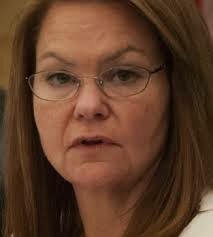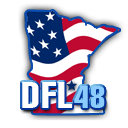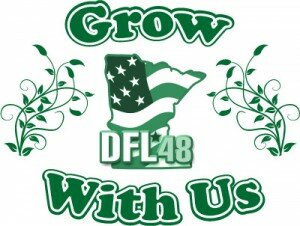 On May 5, 2015, the StarTribune‘s editorial board published the following about the House GOP’s desired to open Minnesota elections up to unlimited spending by PACs and lobbyists. They’re basically putting Minnesota’s state elections up for purchase by the highest bidder. A candidate could collect all their funds from special interests and not a dime from the people they’re supposed to be representing.
On May 5, 2015, the StarTribune‘s editorial board published the following about the House GOP’s desired to open Minnesota elections up to unlimited spending by PACs and lobbyists. They’re basically putting Minnesota’s state elections up for purchase by the highest bidder. A candidate could collect all their funds from special interests and not a dime from the people they’re supposed to be representing.
We don’t know about you, but that feels like a really bad way to go if we want open, fair elections.
Here’s the text from the editorial:
“Minnesota’s practice of democracy is far from perfect. But it affords average citizens a greater measure of political clout than they have in many other states. Two-thirds of donations to Minnesota legislative candidates in 2012 came in increments of $250 or less, a share second among the states only to Connecticut.
For that, credit is due an ingenious 40-year-old public campaign finance scheme that provides refunds for small donations to candidates for state offices and allows those candidates to voluntarily limit special-interest contributions and total spending in exchange for taxpayer-provided campaign cash.
(more…)
campaign finance · dark money · lobbyists · MInnesota House GOP · PACs · special interests
 Kim Barker and Theodoric Meyer posted the above article on the ProPublica.org website on April 25, 2014. In it, they discuss how easy it is for dark money groups (those that don’t report their donors) to ignore the Internal Revenue Service.
Kim Barker and Theodoric Meyer posted the above article on the ProPublica.org website on April 25, 2014. In it, they discuss how easy it is for dark money groups (those that don’t report their donors) to ignore the Internal Revenue Service.
They describe the case of the Government Integrity Fund, which spent more than $1 million in 2012 on ads attacking Sen. Sherrod Brown and praising his GOP opponent. Why is this bad? The organization was founded the year before and applied for IRS recognition of it’s tax-exempt status, “swearing under penalty of perjury that it would not engage in politics but would instead promote the social welfare of the citizens of Ohio.” Having so sworn, the IRS gave recognition to the group within 2 months.
In the organization’s 2012 tax return, this group says it spent $5.2 million. $2 million of which went to two super PACS. The majority of that amount went to the Government Integrity Fund’s sister super PAC. Dark money groups spent more than $256 million on election activities in 2012.
There’s lots more in the article. Read the full article here.
campaign finance · dark money · Government Integrity Fund · ProPublica
Citizens United Political Victory Fund throws money at Ortman, further proves she’s out of touch with Minnesota voters
 Today Republican U.S. Senate Candidate, state Sen. Julianne Ortman was endorsed by Citizens United Political Victory Fund, the affiliated PAC of Citizens United, whose successful battle before the Supreme Court led to unlimited spending in elections and is largely credited with the weakening of democracy in America.
Today Republican U.S. Senate Candidate, state Sen. Julianne Ortman was endorsed by Citizens United Political Victory Fund, the affiliated PAC of Citizens United, whose successful battle before the Supreme Court led to unlimited spending in elections and is largely credited with the weakening of democracy in America.
Ortman’s acceptance of Citizens United’s endorsement is a blatant admission that she, like the right-wing group that won the Supreme Court case Citizens United v. Federal Election Commission, believes corporations have the right to spend unlimited amounts of money to influence Minnesota’s elections.
News of Citizens United endorsement comes on the heels of Ortman’s endorsement from Sarah Palin, further proving that the State Senator is too conservative for Minnesota.
“Ortman’s endorsement by a group who paved the way for unlimited, unaccountable special interest spending in our elections speaks volumes about her values,” said DFL Chairman Ken Martin. “Ortman should be fighting to strengthen the voices of Minnesotans in our democracy not taking money from a group trying to eclipse them. She is far too extreme for Minnesota.”
campaign finance · Citizens United · Julianne Ortman · Sen. Julianne Ortman
from Timothy Karr, Campaign Director, Free Press and SavetheInternet.com, posted on Huffington Post’s “The Blog”:
By now it seems pretty clear that Sen. Ted Cruz has a plan to occupy the White House. But he doesn’t want people to know too much about it.
And he definitely doesn’t want you to know about the special interests that have already begun to bankroll his political ambitions.
That’s why the Texas senator’s latest crusade targets the Federal Communications Commission — and its efforts to better identify the funders of political ads.
Cruz has placed a hold on the Senate confirmation of Tom Wheeler to head the agency, despite bipartisan agreement to vote on Wheeler without delay. Cruz wants assurances from Wheeler that the FCC won’t follow the law and require disclosure of the real funders for dark-money political groups that clog the airwaves with negative and misleading ads.
These nominally independent 501(c)4 groups plowed millions of dollars into the 2012 elections, and there’s every indication they’ll be back in even greater numbers in 2014.
And while the Federal Elections Commission has a limited ability to identify the funders of the groups that emerged in the wake of the Supreme Court’s Citizens United decision, the FCC has a clear legal path to transparency.
Broadcasters are obliged by law to disclose who pays for political ads in exchange for using the airwaves. It’s a public interest bargain stretching back almost a century, and one that forms the foundation of U.S. communications law.
Free Press and our allies won a major victory in 2012 when the FCC ordered all television stations to post this information to an online database the agency manages. In the past, you could find this information only by visiting each station, a time-consuming process that uncooperative receptionists, steep photocopying fees and incomplete and unwieldy paper files made even more complicated.
Now you can go to a single website and find important data on who is spending how much on political ads at major stations in the nation’s 50 largest television markets. (The FCC plans to include political file data from stations in all 210 U.S. broadcasts markets by 2014.)
While a vast improvement over its paper-file predecessor, the system has some glitches. The FCC should make it easier to aggregate, search and analyze the data by requiring television stations to upload their political files in a machine-readable format.
It should also require fuller disclosure. Communications law expert Andrew Schwartzman, who serves as a legal adviser to Free Press, has petitioned the FCC to enforce existing sponsor identification requirements and disclose the names of principal funders in the body of the ads themselves.
Taking this action would let viewers know that an ad from Concerned Taxpayers of Americais actually the creation of two multimillionaires: the owner of a Maryland concrete company and a New York hedge-fund manager.
And that scares Sen. Cruz and his supporters in groups like the Koch brothers funded-Americans for Prosperity, which raises millions of dollars from anonymous donors to run attack ads against their political foes.
Letting the FCC do its job means advancing the public interest at a time when politicians are running amok in Washington. And that means shedding light on the money that helped elect many of these individuals, no matter which party they’re from.
Sen. Cruz shouldn’t deny us our right to know. His reckless ambitions are hurting our democracy. Cruz needs to lift his hold and stop blocking the FCC’s vital work on political disclosure.
— Originally published at Bill Moyers & Company
2016 · campaign finance · FCC · presidential candidate · Senator Cruz · Ted Cruz
 DFL48
DFL48


